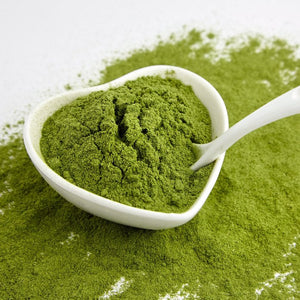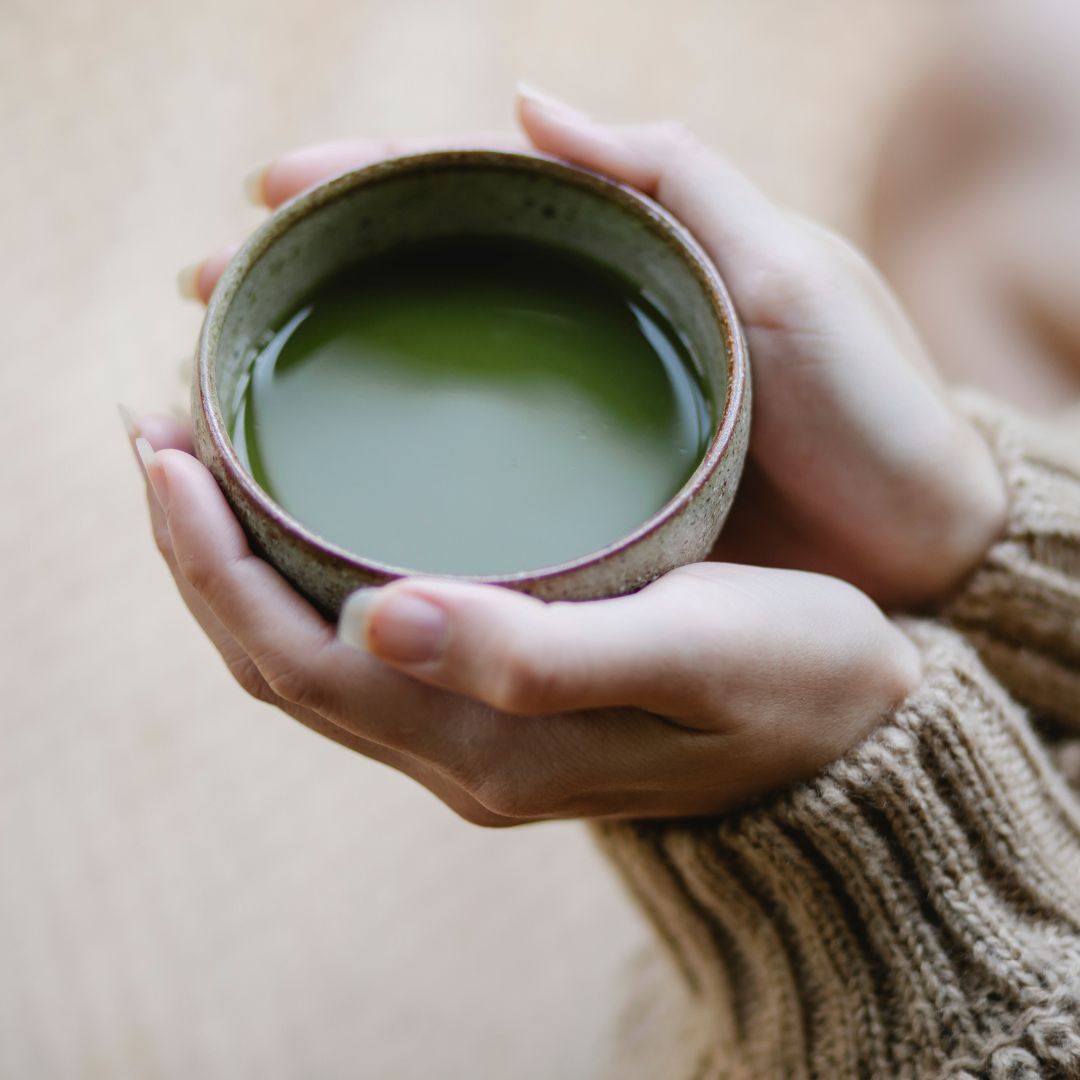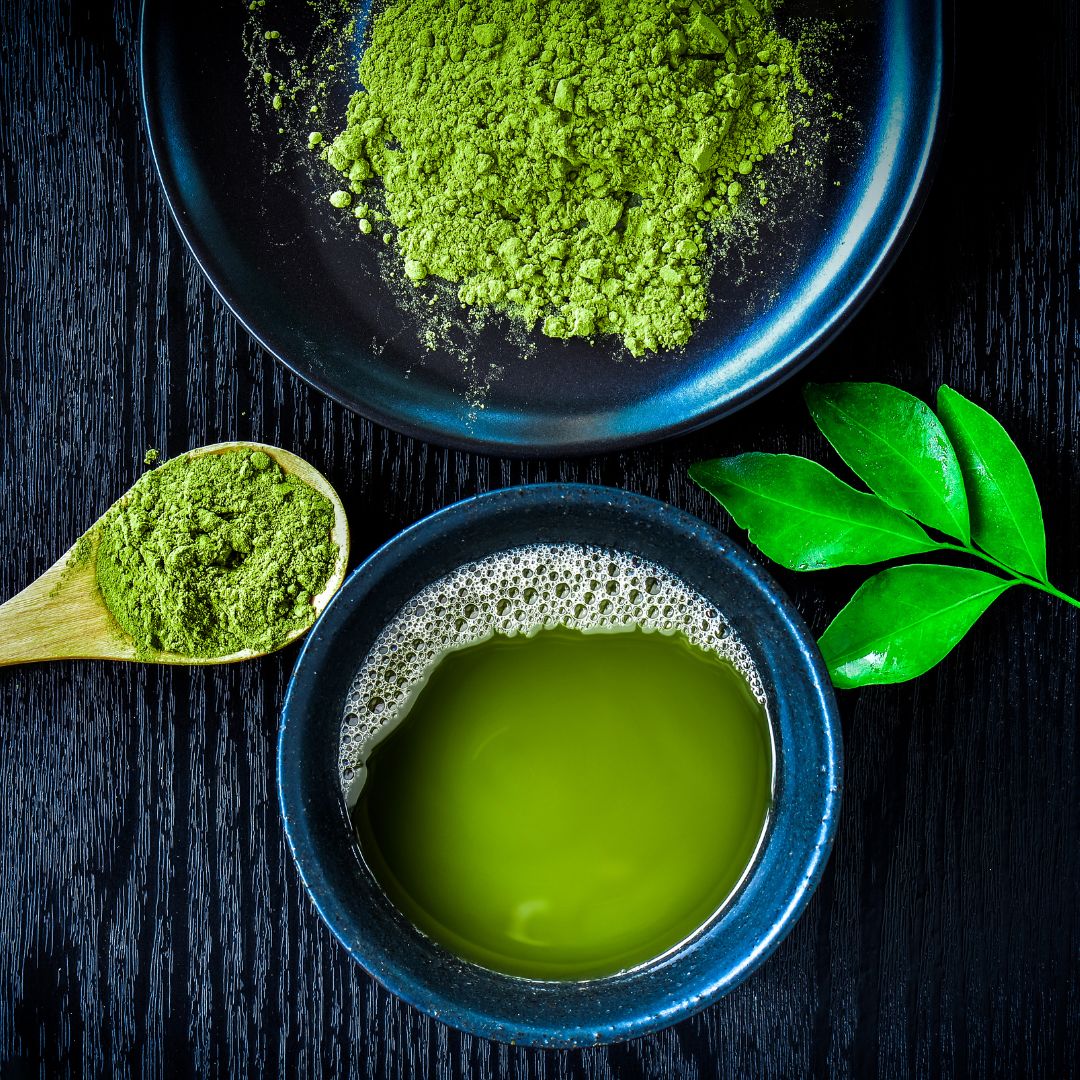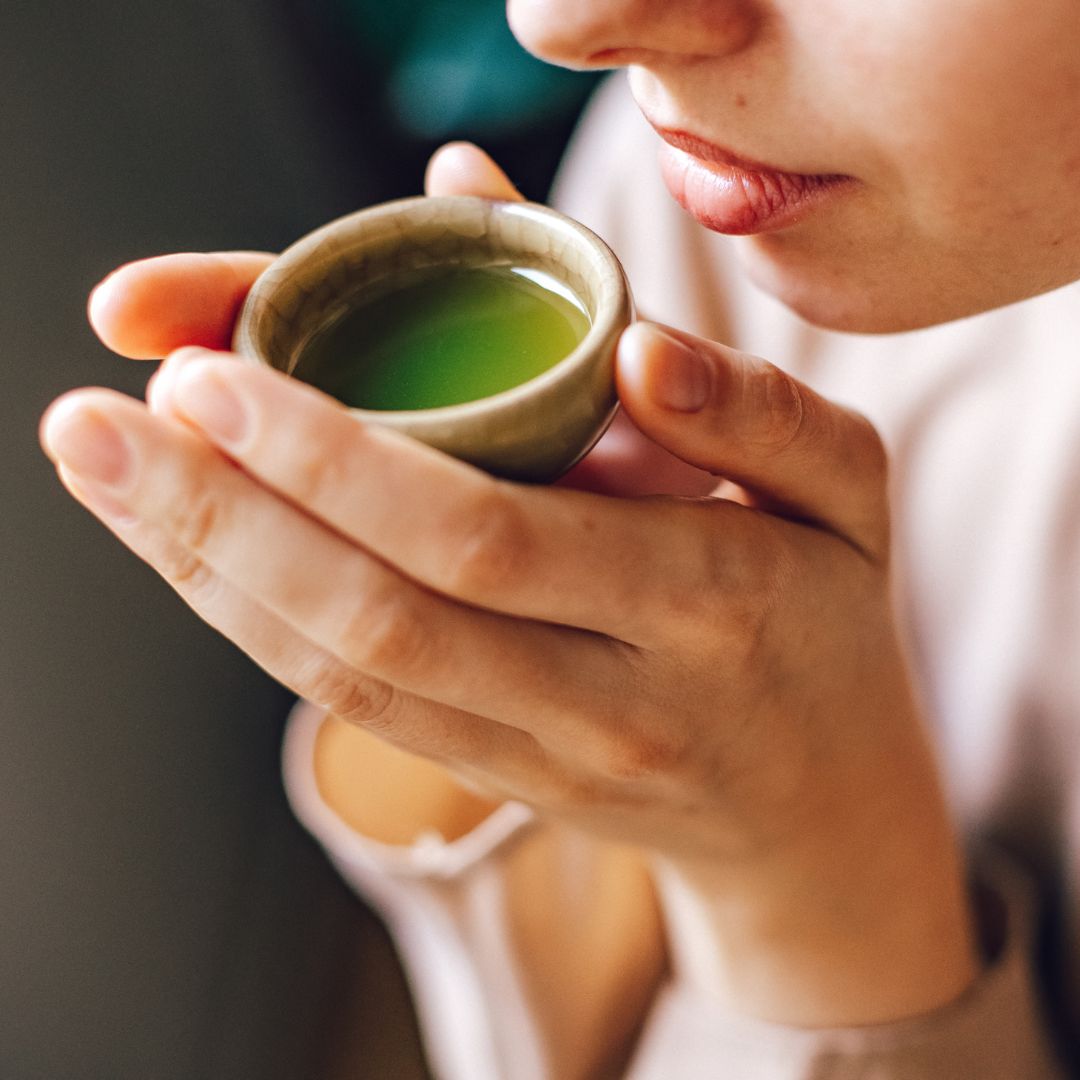The immune system is a complex protective wall of our body that protects us from pathogens and infections. However, in addition to a balanced diet, it needs further support to function effectively and be strengthened.
Strengthening the immune system is important to support the body's defenses and ward off diseases.
Weak immune system:
The immune system plays a central role in defending against pathogens such as viruses, bacteria and other harmful substances. When the immune system is weakened, it cannot effectively fight these pathogens, increasing the risk of infection and illness.
Infections such as colds, flu, and even more serious illnesses can be more severe and last longer in people with a weakened immune system. In addition, certain medical conditions may put these individuals at greater risk of complications.
It is therefore particularly important to strengthen a weakened immune system to minimize the risk of disease and improve the body's ability to deal with pathogens. This includes eating healthy, getting enough exercise, getting enough sleep and reducing stress and harmful habits. It is advisable to seek medical advice if the immune system appears to be weakened over the long term.
Here are some proven methods to boost the immune system:
Healthy eating:
Eat a balanced diet rich in fruits, vegetables, whole grains, lean proteins, and healthy fats. These foods provide important vitamins, minerals and antioxidants that support the immune system.
Sufficient sleep:
Sleep is crucial for the recovery and regeneration of the immune system. Try to get 7-9 hours of sleep per night .
Regular exercise:
Moderate physical activity can strengthen the immune system. You don't have to train intensively, just regular walks or light exercises can help you breathe in oxygen-rich air.
Avoid stress:
Chronic stress can weaken the immune system. Find stress management techniques, such as relaxation exercises, meditation or yoga.
Hygiene:
Wash your hands regularly to prevent the spread of germs. Avoid touching your face to reduce the risk of infection.
Avoid alcohol and tobacco:
Excessive alcohol consumption and smoking can weaken the immune system. Avoid these substances or consume them in moderation. A weak immune system is less able to organize the defense against viruses.
Adequate fluid intake:
Drink enough tea and water to keep your body hydrated, as dehydration can put a strain on the immune system.
Increase your immune system: Better protection in everyday life
Better defenses are a sign of a well-functioning immune system that is able to protect the body from infections and diseases.
It is important to note that immunity does not depend on just one factor, but is influenced by a combination of healthy lifestyle habits and factors. Strengthening the immune system and maintaining strong defenses require a holistic approach to healthcare.
If you have specific questions or health concerns, it is advisable to consult a doctor or professional who can provide you with individual advice.
Here are some methods that can contribute to strong defenses :
Laughing and singing
While laughter and singing are not the direct causes of boosting the immune system, they can help promote health and support the immune system in indirect ways.
It's not without reason that popular wisdom says that laughing is healthy and can strengthen the body's immune system.
Laugh:
Laughter can reduce stress because it can reduce the production of stress hormones such as cortisol and increase the release of endorphins, the so-called feel-good hormones. Stress can negatively impact the immune system, and reducing stress can help support the immune system.
Laughter can improve blood circulation and oxygen delivery, which contributes to overall health. It promotes social bonds and interpersonal relationships, which can also have a positive effect on health.
To sing:
Singing can relieve stress and help improve breathing and lung capacity, which is important for keeping the respiratory system healthy. A healthy respiratory system can help strengthen defenses against respiratory infections. Singing can reduce stress and increase well-being, similar to laughter. Singing together in social groups can strengthen social bonds and promote a sense of belonging.
Important:
Although laughter and singing can have positive health effects, it is important to note that they alone are not enough to boost the immune system. A healthy lifestyle, including a balanced diet, regular exercise, adequate sleep and good hygiene practices, remains crucial for supporting the immune system.
It is also important to consider individual health needs as not all activities work the same for everyone. Overall, laughing and singing as part of a healthy lifestyle can help promote mental health and well-being, which in turn can have a positive effect on the body's defenses.
Enough sleep
Adequate sleep plays a crucial role in supporting and strengthening the immune system. During sleep, several important processes take place that promote immune function.
Recovery and regeneration:
Sleep allows the body to recover and regenerate. This is particularly important for the immune system as it can work more effectively while you sleep.
Inflammation control:
Sleep helps regulate the inflammatory process in the body. Chronic inflammation can affect the immune system, and getting enough sleep can help reduce inflammation.
Production of cytokines:
During sleep, cytokines are produced that play a key role in regulating the immune system. Certain cytokines are required to coordinate the immune response and fight infections.
Strengthening the memory function of the immune system:
The immune system “remembers” pathogens that it has already encountered. During sleep, this immunological memory is strengthened, helping the body respond more quickly to recurring infections.
Lack of sleep:
Lack of sleep or a lack of sleep can significantly affect the immune system and increase susceptibility to infections. It has been shown that people who don't get enough sleep are more susceptible to colds, flu and other infections. Pathogens then have an “easy job”.
Sleep duration:
The recommended amount of sleep varies depending on age, but most adults need about 7 to 9 hours of sleep per night for optimal recovery. It is important to maintain a regular sleep-wake cycle and develop healthy sleep habits to improve the quality and quantity of sleep. This includes avoiding caffeine and electronic devices before bed, creating a comfortable sleep environment, and maintaining a consistent sleep schedule.
By getting enough sleep, you not only support your immune system, but also promote your overall health and well-being.
Drink lots of tea and water
Much Fluid is a simple and important part of a healthy lifestyle that can help support the immune system and promote overall health.
Here are some reasons why adequate hydration is important:
Hydration of the mucous membranes:
Adequate fluid intake is important to keep the mucous membranes in the nose, throat and respiratory tract moist. This helps prevent the entry of viruses and bacteria that can cause respiratory infections.
Flush out toxins:
Water helps the body flush out toxins and waste products, which can contribute to better health and more efficient immune system function.
Transport of nutrients:
Water plays a role in transporting nutrients and oxygen to cells, including immune cells. A well-hydrated body can deliver nutrients more effectively to where they are needed.
Temperature control:
Water helps regulate body temperature. This is important because high temperatures during fever (an immune system response to infection) can dehydrate the body.
Digestive function:
Adequate hydration supports digestive function by helping food move efficiently through the digestive tract.
A notice:
It is important to note that drinking excessive water does not necessarily make the immune system stronger. Instead, you should ensure adequate and balanced hydration by following your thirst. The recommended daily water intake varies depending on age, gender and physical activity, but is usually between 2 and 3 liters per day.
Matcha tea - the green tea from Japan
The German Nutrition Society recommends drinking 1.5 liters of water every day. Matcha tea can have a positive effect on the immune system as it contains various health-promoting compounds.
Here are some reasons why matcha tea can support the immune system:
Green tea:
Green tea is rich in antioxidants, especially epigallocatechin gallate (EGCG). These antioxidants can help reduce cell damage and fight inflammation. Green tea can help strengthen the body's defenses and support the immune system.
Matcha tea:
Matcha tea is a special type of green tea made from ground tea powder. Due to its concentration of nutrients, matcha often contains higher amounts of EGCG and other antioxidants compared to traditional green tea. This can help protect yourself more effectively from “free radicals”. Secondary plant substances are abundant in matcha tea.
L-Theanine:
Green tea, including matcha tea, contains L-theanine, an amino acid that has calming and stress-reducing properties. Stress can affect the immune system, and L-theanine can help reduce stress and promote relaxation.
Anti-inflammatory:
Both green tea and matcha tea have anti-inflammatory properties. Excessive inflammation can put a strain on the immune system, so these teas can help reduce inflammation.
Antibacterial properties:
Green tea may contain antibacterial and antiviral properties that help prevent the spread of pathogens.
Conclusion:
To reap the immune system benefits of green tea and matcha tea, you should regularly incorporate these teas into your diet. It is important not to pour water that is too hot over the tea, as this can damage the delicate antioxidants. The optimal drinking temperature is usually around 80°C (176°F). Be careful not to sweeten your tea with excessive sugar or cream, as this may reduce the health benefits.
While green tea and matcha tea can help support the immune system, they should be viewed as part of a holistic approach to health care that also includes a balanced diet, adequate sleep, regular exercise, and stress management.
Vitamin-rich diet
Citrus fruits:
Citrus fruits strengthen the immune system. Citrus fruits are known for their ability to boost the immune system. This is mainly due to their high content of vitamin C, an essential nutrient for maintaining a healthy immune system. Vitamin C supports the production of white blood cells, which are the main players in our immune system and are responsible for defending against pathogens.
Antioxidants:
In addition, citrus fruits contain a variety of other nutrients that support our immune system. They are rich in antioxidants such as vitamins A and E, which fight free radicals and can therefore reduce oxidative stress. This is important because high exposure to free radicals can weaken the immune system.
Important nutrients in citrus fruits:
Other important nutrients in citrus fruits include B vitamins, potassium and fiber. B vitamins play a crucial role in the normal functioning of the immune system, while potassium maintains the balance of body fluids, enabling optimal immune function. Fiber, in turn, supports healthy intestinal flora, which is closely linked to a functioning immune system.
Nutrient diversity:
By regularly integrating citrus fruits into our diet, we can benefit from their nutritional diversity and strengthen our immune system. A balanced diet rich in citrus fruits provides us with the necessary nutrients to prevent illness and strengthen our defenses. We also recommend matcha tea with essential citrus or orange oil.
Ginger, the versatile tuber
Ginger:
Ginger, also known as Zingiber officinale, is a versatile tuber that has been used in traditional medicine for centuries. It's no wonder ginger was named Medicinal Plant of the Year in 2018. This award is due to its numerous health benefits. Ginger is part of a balanced diet.
Ginger has powerful antioxidant properties:
This means it helps fight free radicals that can cause harmful oxidative stress in the body. This can help prevent illness and strengthen the immune system.
Anti-inflammatory properties:
In addition, ginger has anti-inflammatory properties. It can help reduce inflammation in the body and relieve ailments such as joint pain and digestive problems.
Positive digestion:
Another positive effect of ginger is its stimulating effect on digestion. It promotes the production of digestive enzymes, which can lead to better absorption of nutrients. Ginger can also relieve nausea and stomach upset.
Ginger tea:
To reap the health benefits of ginger, you can use it fresh, make it as a tea, or include it in your meals as a spice. We also recommend organic matcha tea Pumkin with ginger, nutmeg and cinnamon.
Ginger the natural medicinal plant:
Ginger is a natural medicinal plant that has antioxidant, anti-inflammatory and digestive properties. Try it and find out for yourself how it can positively affect your body. Ginger has an anti-inflammatory effect and can strengthen the immune system. Chamomile tea also has calming properties and can help reduce stress levels, which can weaken the immune system.
Healthy intestinal flora can strengthen the immune system
Healthy intestinal flora plays a crucial role in strengthening the immune system. The intestine is the home of a large part of the immune system, and the bacteria that colonize the intestine have a significant influence on immune function.
Here are some ways healthy gut flora boosts the immune system:
Regulate immune reactions:
The intestinal flora interacts with immune cells in the intestine and helps maintain the balance of the immune system. It ensures that the immune system responds appropriately to pathogens without being overly active and attacking the body.
Protection against infections:
Healthy intestinal bacteria can keep pathogenic microorganisms in check by competing with them and preventing pathogens from multiplying.
Inflammation control:
A balanced intestinal flora can reduce inflammation in the intestines. Chronic inflammation is associated with a weakened immune system and various health problems.
Production of short-chain fatty acids:
Beneficial bacteria in the intestine ferment fiber and produce short-chain fatty acids such as butyric acid and acetic acid. These compounds promote gut lining health, boost immune function, and can reduce inflammation.
Promote the formation of antibodies:
The intestinal flora contributes to the production of antibodies that protect the body against infections. A healthy gut can help support the production of immunoglobulins.
To promote healthy intestinal flora, you can take the following measures :
High fiber diet:
Eat a diet rich in fiber because fiber is the food for beneficial gut bacteria.
Probiotics:
Probiotics are live bacteria that can have a positive effect on the intestinal flora. They are available in fermented foods such as yogurt and sauerkraut, as well as in dietary supplements.
Prebiotics:
Prebiotics are non-digestible fiber that promotes the growth of beneficial bacteria. They are found in foods such as garlic, onions, asparagus and artichokes.
Conclusion:
Maintain a balanced diet and a healthy lifestyle. Promoting healthy intestinal flora is an important measure for a healthy immune system and maintaining general health.
However, changes in intestinal flora may take some time to become noticeable, so patience is required. If you have specific questions about gut health or the immune system, you should consult a doctor or professional.
Sauna and alternating baths are good for the immune system
Sauna baths and alternating baths can have a positive effect on the immune system and health if they are used safely and in moderation.
Here are some benefits of sauna baths:
Strengthening the immune system:
Sauna baths can increase the production of white blood cells, which are important for immune defense.
Detoxification:
Sweating in the sauna helps remove toxins from the body and can aid in cleansing and detoxification.
Relaxation and stress relief:
Sauna baths promote relaxation and can reduce stress. Chronic stress can affect the immune system, so reducing stress can indirectly help strengthen the immune system.
Improved blood circulation:
The heat in the sauna causes blood vessels to dilate and promotes blood circulation, which contributes to overall health.
Exercise in the fresh air
Exercising in the fresh air can strengthen the body's defenses and improve your mood. Oxygen-rich air and deep breathing improves blood circulation, reduces stress and increases well-being.
Walking, jogging, cycling and outdoor activities are good ways to benefit from the positive effects of nature.
Physical activity reduces the stress hormone cortisol and releases feel-good hormones such as endorphins, which can increase well-being.
Whether it's a workout in the gym, a walk in the park or a jog - exercise can contribute to a strong immune system and thus help prevent illness. So get out into the fresh air and keep moving!
Here are a few more tips to reduce stress
Help yourself: Relaxation techniques are methods to reduce stress, promote calm and increase overall well-being. There are different approaches to relaxation, and choosing the right technique depends on personal preference.
Here are some popular relaxation techniques :
Breathing exercises:
Conscious breathing can reduce stress. Deep inhaling and exhaling as well as various breathing techniques such as the 4-7-8 method can have a calming effect.
Meditation:
Meditation techniques help calm the mind and find inner peace. This can be achieved through guided meditations, mindfulness meditation or transcendental meditation.
Yoga:
Yoga combines postures, breath control and meditation to relax the mind and body.
Autogenic training:
Physical and mental states of relaxation are achieved through targeted thoughts and ideas.
Tai chi:
This Chinese art of movement promotes relaxation and balance through flowing, slow movements.
Music and art:
Listening to music, painting, or drawing can be creative ways to relieve stress and relax.
Massages:
Professional massages can help relieve physical tension and promote relaxation.
Hot baths or saunas:
Immersing yourself in warm water or visiting a sauna can provide physical and mental relaxation.
Conclusion:
It is important to find the relaxation technique that best suits your individual needs. Regular practice of these techniques can help reduce stress and boost overall well-being and immunity.






